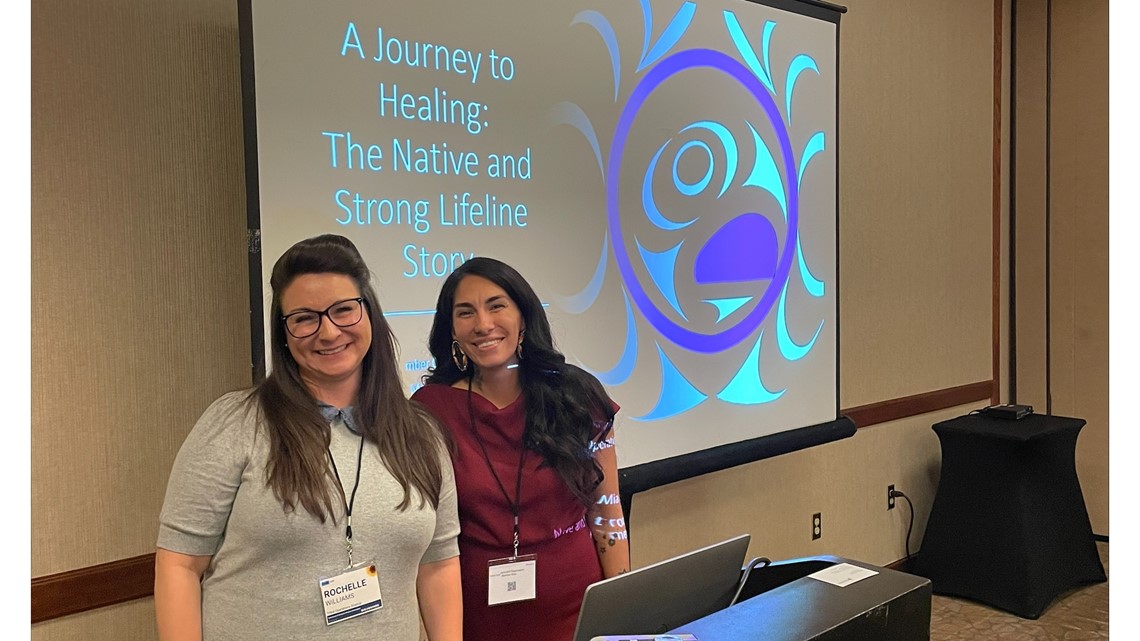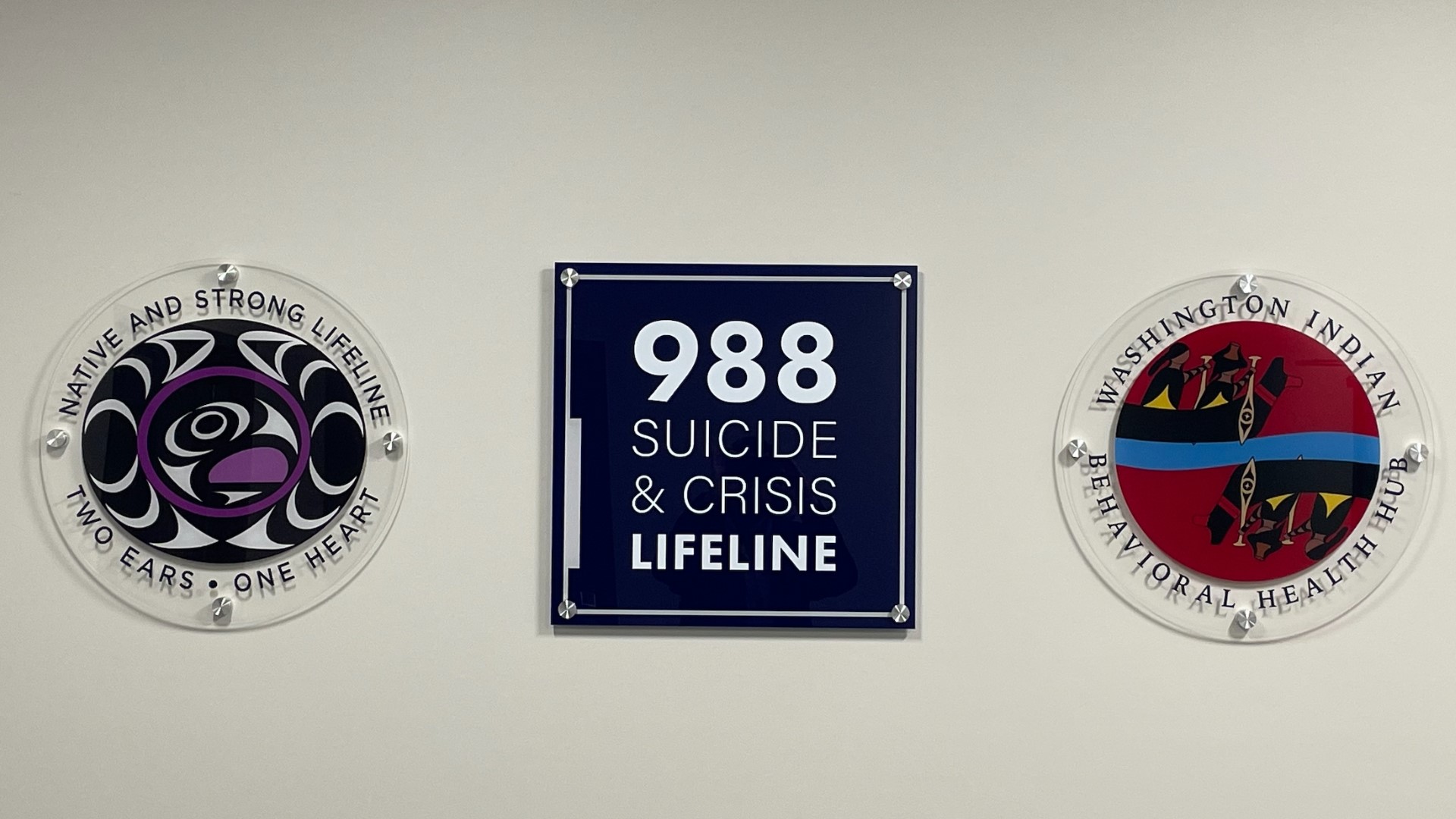WASHINGTON, USA — A 988 suicide and crisis lifeline for Native people launched in Washington state Thursday, the first of its kind in the nation.
The Native and Strong lifeline consists of 13 counselors, all Indigenous, who take calls 24 hours a day, 365 days a year. To reach them, Native people can call 988, the nationwide three-digit mental health crisis hotline, and then press option 4.
It's important to have someone on the other end of the phone who is also Native, said Rochelle Williams, the tribal operations manager for Volunteers of America of Western Washington, who oversees the new lifeline.
"If the people on the other end of the line are not Native, you're not going to gain the level of trust that you would hope to gain," Williams said. "It's really important for us to hear that voice on the other end and to know that we do have something common."
Williams is a member of the Ehattesaht First Nation tribe and a descendant of the Tulalip Tribes in Washington. The state of Washington is home to 29 federally recognized tribes and has a big Indigenous population.


According to data from the Centers for Disease Control, American Indian and Alaska Native populations had the highest suicide rates in 2020 in the U.S. Numbers show native communities are disproportionally impacted by suicide. From 1999 to 2017, the suicide rates among Indigenous women rose by 139% and Indigenous men by 71%.
For comparison, the overall suicide rate for the U.S. rose by 33% in that same time period, according to the CDC.
"This historical trauma that we've been through, whether it's boarding schools for our grandparents or our parents, whether it's land allotments or being moved from different areas, not being connected with our territories anymore, the loss of language, the loss of culture, these things have contributed to our suicide rates, to our culture of poverty," said Williams.
Counselors at the Native and Strong lifeline receive the same training as 988 lifeline counselors, with additional cultural and traditions training.
"We look at things like intergenerational trauma and historical trauma and we know where these things are coming from. We just have to learn how to heal from them," Williams said.
Funding for the Native and Strong Lifeline came from the passage of House Bill 1477 in the spring of 2021. As the first lifeline in the country specifically for Native communities, teams had no model to work off of when they started the process of creating the lifeline. Now, as it has launched off the ground, the hope is other states will eventually follow.
"It's a really important service and it's the first time that I guess first people are being put first," Williams said. "We're really, really excited to have something just for us. "

